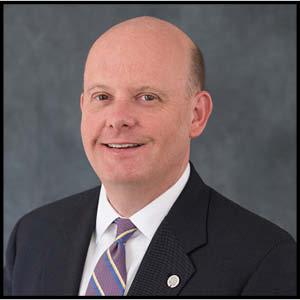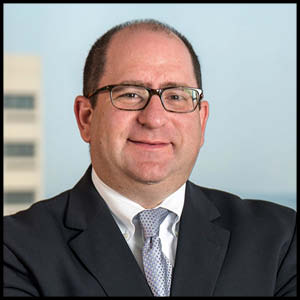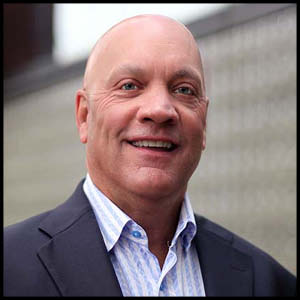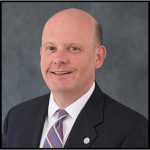

The experts weighed in on how the recent changes to the Tax Cuts and Jobs Act will impact aspects of charitable giving. They shared valuable information about what you can do now to prepare for these changes, and presented giving strategies that work well under the new code.
This type of production is at the heart of WCNY’s mission. WCNY works to connect with and give back to the communities we serve–and truly it’s the investment of our members that provides educational programming to meet the needs of our diverse communities.
We are grateful to our members and are always seeking additional support of special programs that address our communities’ interests and needs.
For more information and ways you can support WCNY, call Shannon Hanrahan at (315) 385-7315 or send an e-mail to Shannon.Hanrahan@wcny.org.
PANELISTS

Peter Dunn has more than 20 years of experience in the community foundation field working to support the growth and impact of the philanthropic sector. In 2008, Peter became the third President and CEO of the Central New York Community Foundation in Syracuse, NY. The oldest and largest philanthropic foundation in the Central New York region, the Community Foundation currently administers more than 700 component charitable funds with a collective value of more than $230 million. In its most recent fiscal year, the Community Foundation distributed more than $14 million in grants and support for local leadership initiatives and nonprofit capacity building efforts. The Community Foundation has distributed more than $170 million to local charities since its inception.
Previously, Peter was Vice President, Philanthropic Services with the California Community Foundation (CCF) in Los Angeles, CA. Peter joined CCF as Gift Planning Officer in 1996, became Director of Gift Planning in 1998 and the foundation’s chief development officer in 2006. During his tenure, CCF’s assets grew from $200 million to more than $1.3 billion and it received more than $1.2 billion in charitable contributions – in the process becoming one of the nation’s largest community foundations. From 1994 to 1996, Peter was Program Coordinator for Community Foundation Services at the Council on Foundations in Washington, DC. At the Council, Peter managed programs addressing community foundation legal, development, marketing and investment issues. He began his nonprofit career as a campaign fundraiser for the United Way of Buffalo and Erie County in 1993.
In June 2011, Peter was appointed by New York State Attorney General Eric Schneiderman to the Attorney General’s Leadership Committee on Nonprofit Revitalization. He is currently a member of the board and treasurer of the Volunteer Lawyers Project on Onondaga County, Syracuse Say Yes Scholarship Council, Downtown Committee of Syracuse and the NY Funders Alliance, a regional association of foundations and funders. He is also a member of the boards of CenterState CEO, Syracuse 20/20, CharitySTRONG, CNYArts and of the Early Childhood Alliance leadership council.

Jeffrey is a business law attorney who represents a wide range of small to mid-size businesses across New York State, including Metropolitan New York City. He focuses his practice on advising closely-held businesses and health carepractices on multiple levels and aspects of their business operations and transactional matters, including succession planning, acquisitions, mergers and sales, secured financings, non-qualified deferred compensation matters, equity related employee benefit matters, share holder/principal relations, contract negotiations and state and federal tax planning. Jeffrey has handled numerous private debt and equity placements, including new market tax credit financings and venture capital investments, and made securities filings for Regulation D offerings and State Blue Sky offerings. He also provides legal services to tax-exempt organizations and currently serves as general counsel to a family foundation.
Jeffrey attended University at Buffalo School of Law (J.D., 1996) as well as the University of Rochester (B.A., with honors , 1993). Several honors and affiliations Jeffrey is involved in includes being featured in New York Super Lawyers 2017 ®, Business and Corporate, the New York State Bar Association, Massachusetts Bar Association, and Onondaga County Bar Association.
Jeffrey currently holds a Board Member position at the following organizations: Green Family Foundation, The Jewish Community Foundation of Central New York, Inc., The Jewish Health & Rehabilitation Center, and The Jewish Home of Central New York Foundation. He is also a chair member on the Board of Trustees for WCNY – Public Broadcasting Council of Central New York, Inc.

Kevin Nass, CPA | Tax Partner, Fust Charles Chambers LLP
Kevin provides income tax, merger, acquisition, estate tax planning, and advisory services to many of the Firm’s closely held businesses. He has worked extensively with the owners of closely held businesses in choice of entity and structuring new business ventures as well as planning for ownership transition. Kevin is also responsible for the delivery of all tax-related services to the Firm’s financial institution clients. He is the Chairman of the Firm’s Technology Committee and is responsible for the development and enhancement of the Firm’s website.
Kevin serves as the President of the Board of Trustees of the YMCA of Greater Syracuse, the Treasurer of the Fayetteville-Manlius A Better Chance Program and on the Professional Advisor Council of the Central New York Community Foundation. He is a member of the American Institute of Certified Public Accountants (AICPA) and the New York State Society of Certified Public Accountants (NYSSCPA). Kevin is a graduate of Syracuse University and resides in Pompey, NY.
 Peter Dunn | President & CEO, CNY Community Foundation
Peter Dunn | President & CEO, CNY Community Foundation
Q: Everybody is talking about the tax reform last year. Any tips for charitable giving under the new rules?
A: 2017 saw tax reform for the first time since the mid–1980s. Both corporate and individual tax brackets and rates changed. For individuals, the standard deduction was increased and the allowable deductions were minimized. The rules for charitable giving remained largely unchanged. However, with the increased standard deduction, fewer taxpayers will be able to itemize their charitable gifts. Even though tax benefits are not the main reason people give, this reduced tax benefit could reduce the total amount given to charity.
Q: What can a donor that used to itemize do?
A: One way to get around this is to use a donor advised fund. By giving to the fund enough one year to exceed the standard deduction, your charitable gifts can be deducted. Then, you can give to charities from your donor-advised fund for the next two or three years and take the standard deduction during those years. You can then repeat this clumping of contributions for tax purposes but keep your giving to the organizations your care about smooth each year.

Kevin Nass, CPA | Tax Partner, Fust Charles Chambers LLP
Q: It seems that a lot may change for donors under the new tax code. What do you think people should do?
A: The effect of tax reform on individuals is very dependent on each person’s financial situation. Some may experience a reduction in tax and more disposable income and others may experience the opposite. Those that have increased disposable income may even be inclined to give more to the organizations that they love since it won’t affect their standard of living. I want to highlight one of the tools that people age 70 ½ can use. This tool is a qualified distribution to charity from their individual retirement account (IRA). This type of distribution is typically referred to as the Charitable IRA Rollover. Using the Charitable IRA Rollover, you can make gifts directly to charity from your IRA. These gifts count toward your required minimum distribution (RMD) but are excluded from your gross income. This tax-free rollover can allow you to sustain or even increase your giving as your cash-flow changes in retirement. It is an easy and convenient way to make a gift from what might be one of your major assets. As I mentioned in the beginning, the tax impacts are unique to each individual and everyone should consult their advisor before making decisions that affect their financial plan.
 Jeffrey B. Scheer, Esq. | Chairman of the Board, WCNY / Business and Transactions – Trusts and Estates, Bond, Schoeneck & King PLLC
Jeffrey B. Scheer, Esq. | Chairman of the Board, WCNY / Business and Transactions – Trusts and Estates, Bond, Schoeneck & King PLLC
Q: The estate tax exemption is now over $11 million per person. It does not seem to affect many of us. Do people still need estate plans?
A: The estate tax limits have been significantly increased to the point that much less than 1% of taxpayers will be exposed to the estate tax. That doesn’t mean that your estate plan is no longer needed…far from it. Considerations like personal income tax, loss of competency, asset protection, family issues, domicile and charitable giving all need to be reviewed to make sure the estate plan provides for the most tax efficient and effective distribution of assets based on your desires.
Q: What changes to the law will affect planning for the 99%?
A: Some examples of changes to the law that may change your planning are the improved ABLE accounts for disabled persons, the expanded use of 529 accounts, and the continuing disconnect between the Federal and NY State estate tax exemptions. Also, understanding the choice of assets that are available to meet your charitable goals is important in order to minimize the taxes paid by heirs. For example, leaving your IRA to a person makes the proceeds taxable to them at their ordinary income tax rates, but leaving that IRA to fulfill your charitable goal is tax-free to the charity. Selecting the right asset could save your heirs a substantial amount. If it has been a while since you reviewed your plan, now would be a great time for an update.
To include WCNY in your will, trust, etc., please use our legal name, The Public Broadcasting Council of Central New York, Inc. Our address is 415 W. Fayette St., Syracuse, NY 13204. WCNY is a 501 (C) (3) tax-exempt organization. Please contact Shannon Hanrahan for our Federal Tax Identification number.